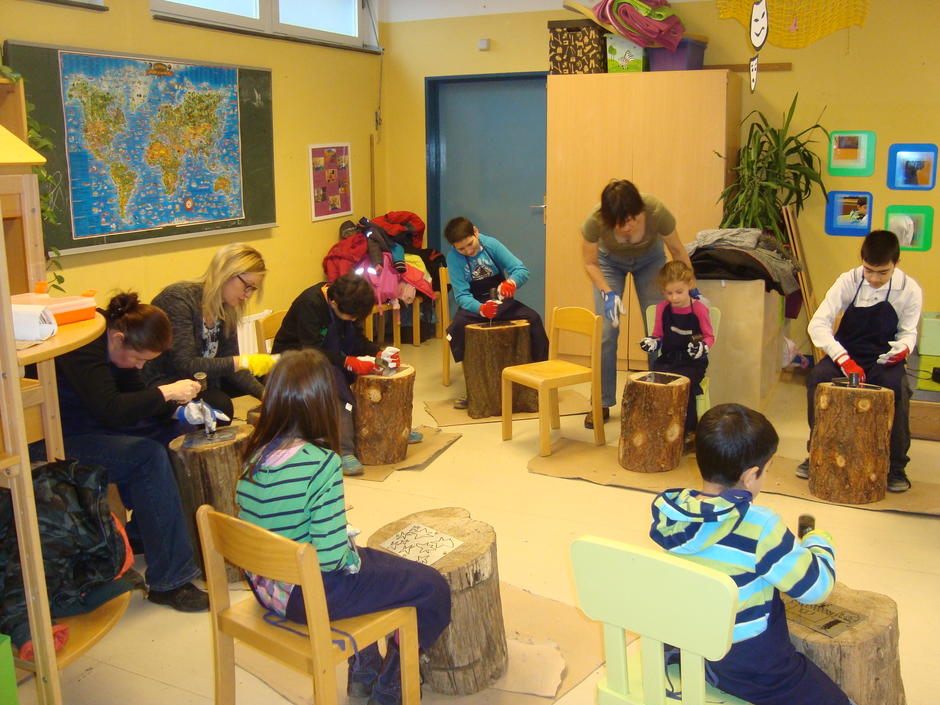
Social and Employment
Place
Berlin, Germany
Sponsor
Wilfried Rupp
Grant
€8,000 to the Selection Committee at 2014/10/17
Project leader
Förderverein der Kiepert-Grunschule
The nonprofit Förderverein der Kiepert-Grunschule helps the Kiepertprimary school in Berlin to develop extra-curricular activities. It gathers together teachers, educational assistants and parents of the students of the school, which has 400 students from 28 different countries (Afghanistan, Iran, Iraq, Syria, etc.). Many children are waiting for their official papers and are asylum seekers. Some live with their families in social housing for refugees. The nonprofit wants to make the Kiepert school not only a place for learning, but also a place where the children feel comfortable, by respecting the wide cultural diversity of their origins.
Sculptures that enhance the children's creativity
The school's intergenerational project "IchunddasgraueLangohr" is divided into various phases:
- as part of their biology classes, the children observe the bats in their natural environment thanks to the involvement of the nonprofit NaturschutzMarienfelde;
- the plastic arts classes are used to sculpt five bats in partnership with the pair of artists Serge Petit and Gabriele Roßkamp. These artists can boast significant experience in the field of participatory projects with children, in Germany and France. The stainless steel works are intended to decorate the facades of the school for many years to come, which makes the children content and boosts their self-respect, while initiating them into the techniques of sculpture in metal in a collaborative approach.
Children in economic and social difficulty
The implementation of such a project assumes its full meaning in the particular context of the Kiepert school, which welcomes a large number of children in social and economic difficulty (some come from the asylum seekers hostel from Marienfelde in Berlin). These obviously need to benefit from this type of initiative even more, because they particularly suffer from a dearth of recognition.
A project open to awareness-raising in nature conservation
Besides its social objectives, the project echoes one of the Veolia Foundation's strategic guidelines: awareness-raising in environmental conservation. The children gain awareness of the environmental challenges by observing nature in the wild and by studying issues of environmental conservation in class. Work with metal also enables the children to test skills and encourages some of their capabilities that could become useful later on in their careers. And the project is also the fruit of the commitment of two artists in favor of nature conservation in a social and participative approach.

